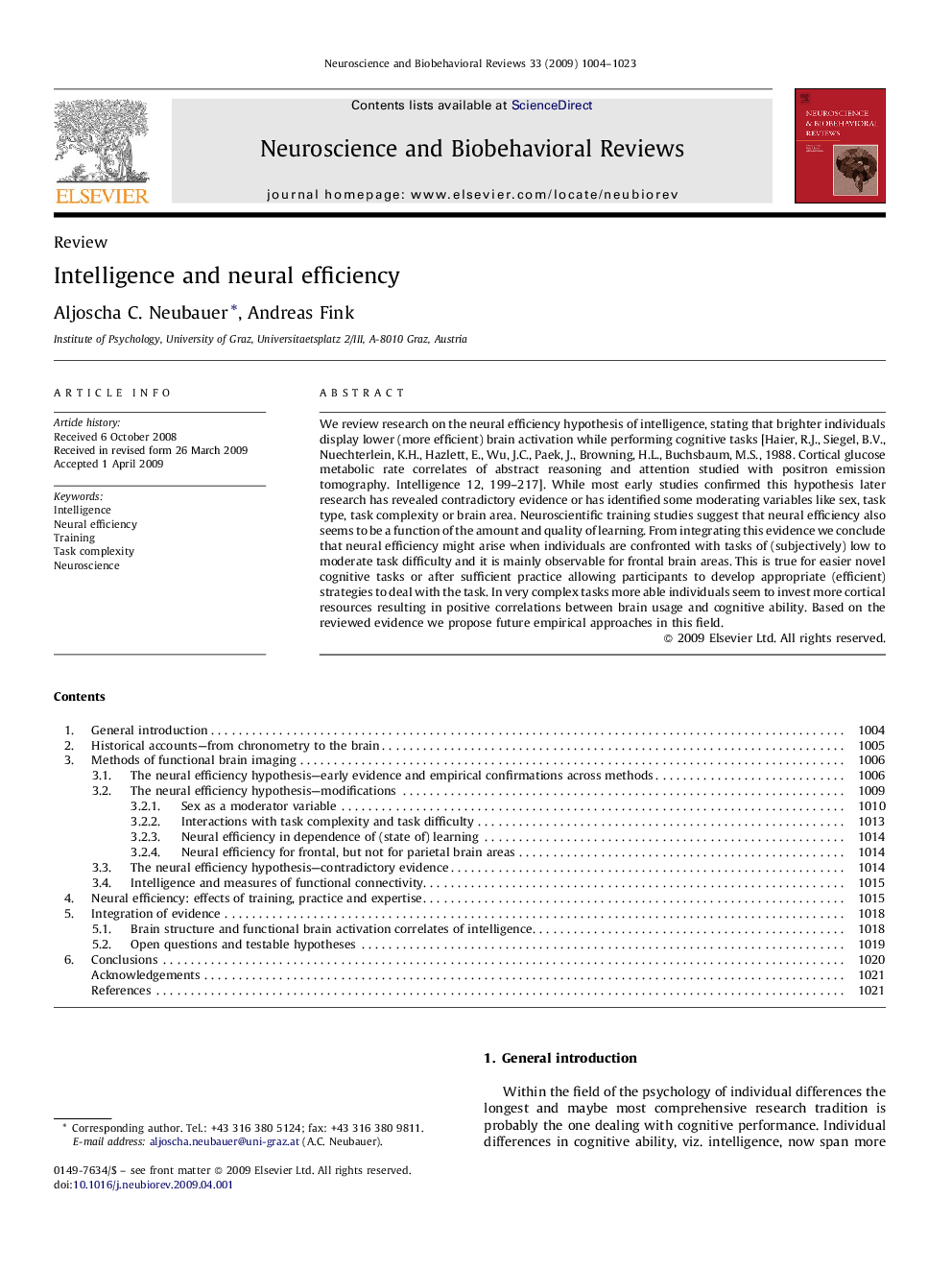| کد مقاله | کد نشریه | سال انتشار | مقاله انگلیسی | نسخه تمام متن |
|---|---|---|---|---|
| 937805 | 924545 | 2009 | 20 صفحه PDF | دانلود رایگان |

We review research on the neural efficiency hypothesis of intelligence, stating that brighter individuals display lower (more efficient) brain activation while performing cognitive tasks [Haier, R.J., Siegel, B.V., Nuechterlein, K.H., Hazlett, E., Wu, J.C., Paek, J., Browning, H.L., Buchsbaum, M.S., 1988. Cortical glucose metabolic rate correlates of abstract reasoning and attention studied with positron emission tomography. Intelligence 12, 199–217]. While most early studies confirmed this hypothesis later research has revealed contradictory evidence or has identified some moderating variables like sex, task type, task complexity or brain area. Neuroscientific training studies suggest that neural efficiency also seems to be a function of the amount and quality of learning. From integrating this evidence we conclude that neural efficiency might arise when individuals are confronted with tasks of (subjectively) low to moderate task difficulty and it is mainly observable for frontal brain areas. This is true for easier novel cognitive tasks or after sufficient practice allowing participants to develop appropriate (efficient) strategies to deal with the task. In very complex tasks more able individuals seem to invest more cortical resources resulting in positive correlations between brain usage and cognitive ability. Based on the reviewed evidence we propose future empirical approaches in this field.
Journal: Neuroscience & Biobehavioral Reviews - Volume 33, Issue 7, July 2009, Pages 1004–1023